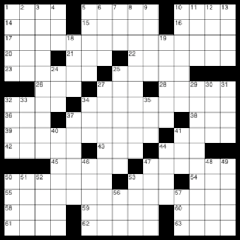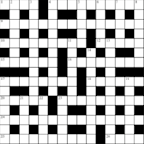Search results
Results From The WOW.Com Content Network
Grammatical case. A grammatical case is a category of nouns and noun modifiers ( determiners, adjectives, participles, and numerals) that corresponds to one or more potential grammatical functions for a nominal group in a wording. [1] In various languages, nominal groups consisting of a noun and its modifiers belong to one of a few such categories.
The subject constituent precedes the verb and the object constituent follows it. The Object–subject–verb (OSV) may on occasion be seen in English, usually in the future tense or used as a contrast with the conjunction "but", such as in the following examples: "Rome I shall see!", "I hate oranges, but apples I'll eat!". Questions
The verb "conquered" is a common element in each clause. The zeugma is created in both the original and the translation by removing the second and third instances of "conquered". Removing words that still can be understood by the context of the remaining words is ellipsis.
Crossword. An American-style crossword grid layout. A crossword (or crossword puzzle) is a word game consisting of a grid of black and white squares, into which solvers enter words or phrases ("entries") crossing each other horizontally ("across") and vertically ("down") according to a set of clues.
e. ) In linguistic typology, a verb–subject–object ( VSO) language has its most typical sentences arrange their elements in that order, as in Ate Sam oranges (Sam ate oranges). VSO is the third-most common word order among the world's languages, [3] after SOV (as in Hindi and Japanese) and SVO (as in English and Mandarin Chinese ).
Dawn represents the past (specifically the preterite ), noon the present and night the future. In linguistics, conjugation ( / ˌkɒndʒʊˈɡeɪʃən / [1] [2]) is the creation of derived forms of a verb from its principal parts by inflection (alteration of form according to rules of grammar ).
When a possessive and an of phrase are used with the same action noun, the former generally represents the subject and the latter the object. For example: Fred's dancing (or the dancing of Fred) – Fred is the dancer (only possible meaning with this verb) the proposal's rejection or the rejection of the proposal – the proposal is rejected
A major sentence is a regular sentence; it has a subject and a predicate, e.g. "I have a ball." In this sentence, one can change the persons, e.g. "We have a ball." However, a minor sentence is an irregular type of sentence that does not contain a main clause, e.g. "Mary!", "Precisely so.", "Next Tuesday evening after it gets dark."
Dazzling is a 2023 novel written by Nigerian-British writer Chikodili Emelumadu and published by Wildfire in 2023. The novel focuses of Treasure, who is married to a spirit and Ozoemena, who is initiated into the Leopard Society which gives her a shamanistic connection with the Igbo goddess, Idemili. Ozoemena is tasked with finding a tether for ...
The agent is a semantic concept distinct from the subject of a sentence as well as from the topic. While the subject is determined syntactically, primarily through word order, the agent is determined through its relationship to the action expressed by the verb.








